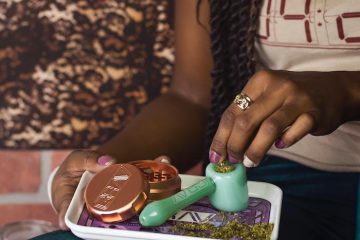We Brought Our Own Avocados to Brunch. This is How the Restaurant Reacted.
Guest post by Max Silver
Millennials and younger generations are constantly being told that they need to be more responsible with their finances. Some Australian millionaire-douchebag by the name of Tim Gurner had the audacity to tell us that if we ever wanted to afford a house, we must stop ordering avocado toast.
Avocados are expensive fruits. They are also scrumptious, and sometimes they are a necessary ingredient for a meal to taste good. On top of that, avocados are loaded with healthy fats, antioxidants, fiber, potassium, vitamins, and other beneficial nutrients. They may help reduce the risk of cancer, protect your eyes, relieve symptoms of arthritis, and lower your cholesterol. Why should a food that good for you be only available to those who can afford it? If you go to a restaurant and order a meal, as the customer, should you not be able to make the best out of your dining-experience without putting yourself in debt? What about the times you have ordered a $2 avocado on the side, and they only give you half of one, or a meager couple slices? What if the avocado you just ordered isn’t as ripe as the ones you pick fresh off the organic avocado-tree growing in your backyard?
On October 12, 2018, I invited a few friends to have brunch with me at Mama’s Royal Café in Oakland. During the meal, I interviewed the group with a few questions in regards to how they felt about bringing their own avocados to this well-established restaurant.
Initially, some of my friends had their doubts about BYOA. “Bringing an avocado to a restaurant makes me kind of anxious,” admitted Sarah, who took photographs documenting the experience at our table while we ate. Another friend of mine, Mallory, added how “If I told my mother she would be embarrassed… every time the waitress comes by to give us more water, take more orders, I feel the need to slowly cover up the avocados…” At the beginning, our waitress had not been alerted to the presence of our precious cargo. I had told my partner, who worked at Mama’s at the time, that we would be doing this. However, another server ended up taking care of our table… one whom I had not notified of the experiment beforehand. This added a new, unpredictable variable to consider. In the event that we were discovered, and the waitress, who was not my partner, deemed it inappropriate for us to bring our own avocados to brunch, we would have had no choice but to compromise the experiment, or possibly eat somewhere else. As a result, because I was unable to communicate my intentions with the waitress in a timely fashion, my friends and I were slightly at risk of being exposed. Asking your server ahead of time could alleviate such anxieties by establishing a transparent relationship between yourselves and the restaurant. This is the most recommended approach. Generally speaking, you should always ask your server first before challenging the status-quo.
Mallory mentioned how “there is an unspoken rule where you can’t bring outside food or drinks…” into some establishments. Indeed, if you bring a meal to a restaurant, use their plate, napkins, and cutlery for your meal, and then leave… that is rude because you have left dirty dishes for someone else to take care of, when you have not even paid for the mess that you left behind. This prompted the following questions from Mal, “Why would that establishment give you the go-ahead? What’s in it for them? Ultimately this is a business, at the end of the day they are trying to make money to sustain themselves…Why would they say yes to BYOA?”
A suggestion was made that there could be a “shucking-fee” similar to the corkage-fee some restaurants charge for bringing your own alcoholic beverage. However, as my friend Adam pointed out, “It’s different from bringing in wine or coffee because you are talking about something that enhances the flavor of the food…maybe it’s a statement that this food isn’t good enough without it…” It is fair to consider the restaurant owner’s feelings when bringing foreign add-ons to go with a product that, for all intensive purposes, the chef might have deemed their culinary masterpiece, if not an edible work of art. However, this argument favors the restaurateur’s emotional wellbeing more so than the consumer’s satisfaction with their purchased meal. On one hand, no one wants to be offensive, but on the other hand, most people do want to enjoy their meal to its fullest. Adam also suggested that, “Maybe the shucking fee… it’s a good factor for [restaurants] staying in business… Prices have gone up in the past few years, maybe general inflation or mark-ups like that are keeping them in business…” For some restaurants, it might be economically feasible to reduce their expenditure on avocadoes by allowing customers to bring their own. According to the American Restaurant Association, prices have soared by 125% as of September 9, 2017.
For the customer, however, the shucking-fee would probably cover the cost of the avocado as a side-dish, invalidating it as a thrifty purchase. Which brings up the next important question: Is it about price, or quality?
According to Sarah, “Just last week we went out to brunch, and I ordered something with avocado, and they put a few slices of avocado in there but you could tell that they did it because they had only unripe avocado so technically they put the avocado in but it wasn’t good…” Sometimes a restaurant’s avocado-supply will expire, and the fruit’s interior will turn brown and start to rot. Not only is this unsavory, but it is also wasteful. By bringing your own avocado, you are ensuring its quality. This is perhaps the greatest advantage to BYOA. To emphasize this point, Mal mentioned how, “Preparation-fee… wouldn’t make sense, because you might as well just buy a side of avocado at the restaurant…but if you want to ensure that you are actually getting your value for your dollar…” Prices and quality vary at different grocery stores. You can get a bag of 7 Hass avocadoes at Safeway for $5 ($1.40 each before taxes), but at the same time a whole, individual organic avocado might cost you up to $3 elsewhere. In the meantime, Adam and Sarah have an organic avocado tree growing in their own backyard, meaning BYOA would be the best option for them because it’s free. “Getting an avocado at a restaurant,” said Adam, “you don’t necessarily know where it comes from.” Similarly, it can be difficult to determine whether or not the restaurant’s avocados are organic, unless you have tasted them. “Organic avocados taste so much better,” said Sarah. Everyone at the table agreed with this statement.
In regards to scrutiny from family members like Mal’s mother, Sarah mentioned, “it reminds me of getting embarrassed for things your parents did…like ‘god I’m so embarrassed my dad brought Ranch to the restaurant’ or ‘grandpa you can’t do that’ … it’s like the millennial turnaround…Now millennials are bringing avocados like your grandpa used to bring Ranch dressing…” In that sense, perhaps BYOA is not a trend at all, but perpetuity of the common practices among thriftier folk who wish to allocate their resources more wisely, or as Adam put it the “generational back-and-forth of wanting to save a little bit extra.” As an explanation for why such behavior can be expected from younger generations and the future ones to come under given circumstances in the U.S. economy, Sarah noted how, “Usually elderly people do it [because] for them currently society is so absurdly expensive but for millennials, society is already absurdly expensive and we’re only in our 20’s-30’s…Now we’re already the old, grumpy people.” Why make our lives even grumpier by putting up with brown avocado slices, in an economy where Mel’s Drive-In (yeah, I said Drive-In, as opposed to the new Mel’s Kitchen) charges $13.50 for Avocado Toast?
There could also be certain days at an establishment where BYOA is permitted, such as “BYOA Wednesdays” as Adam suggested, because “that way people at different tables have a commonality.” Avocado Happy Hour might be another deal that could work at certain times on the weekends.
For lesser-known restaurants (unlike Mama’s) that are struggling to keep afloat, it might be wise not to BYOA. “In terms of small businesses, they are probably in a tough spot too,” Adam acknowledged. It is unpredictable how much a small restaurant pays for their supply, as well as how much they are making back from selling their avocados to customers. The number likely varies from restaurant to restaurant. However, when prompted about how they felt about bringing an avocado to a large corporate food-chain like Mel’s or Denny’s, Sarah admitted, “I would probably sneak it in and I wouldn’t feel bad about it.”
Overall, we enjoyed the experience of bringing our own avocados to brunch. According to Adam, “In principle I like it because it ensures that you get the best avocado, you can feel it and know that it’s ripe. You’re not getting taken advantage of by having to pay a couple extra bucks…” Instead of risking those dollars, you are ensuring the quality of your avocado and overall enhancing your dining experience. Mallory also mentioned how “my nutritionist pushes me to have a quarter of an avocado with every meal” due to healthy fats. Once again, avocados are extremely good for you. They should be readily available for everyone, not just those who can afford it. Adam also noted how doing this “makes it feel more casual” and “like you are at home,” which could also work to the advantage of the restaurant by making customers want to eat there more often due to the convenience of not having to enjoy a good meal and a good, home-based avocado separately.
Finally, before we paid I politely asked the waitress, who had been working at this restaurant for quite a long time, how she felt about it. According to the waitress, speaking on behalf of the establishment itself, “At Mama’s it’s fine…I serve a lot of avocado, you’re not taking any money from us. I know avocados are expensive and I think it’s a great idea…” She went on to add how some customers bring their own maple syrup sometimes. She also admitted that she was so busy she had not even noticed our avocados set directly in the center of our table until we had pointed them out to her. In the very least, you can count on Mama’s Royal Café.
Max Silver, born in Los Angeles and raised in San Francisco, is a Bay Area writer and illustrator. He writes journalism, fiction, sci-fi, historical fantasy, and he also draws comics and cartoon-animations. After college at Santa Cruz, Max moved to Chicago where he performed stand-up comedy. He then moved down to New Orleans, where he played clawhammer banjo and improvised lyrics for a living, before he moved back up to Chicago and eventually returned to the West Coast. Nowadays, Max is happily married and lives in the East Bay.
Follow Max on Instagram, @the_underhound or @sangfroidbooksinc for Sangfroid Books, Inc.














